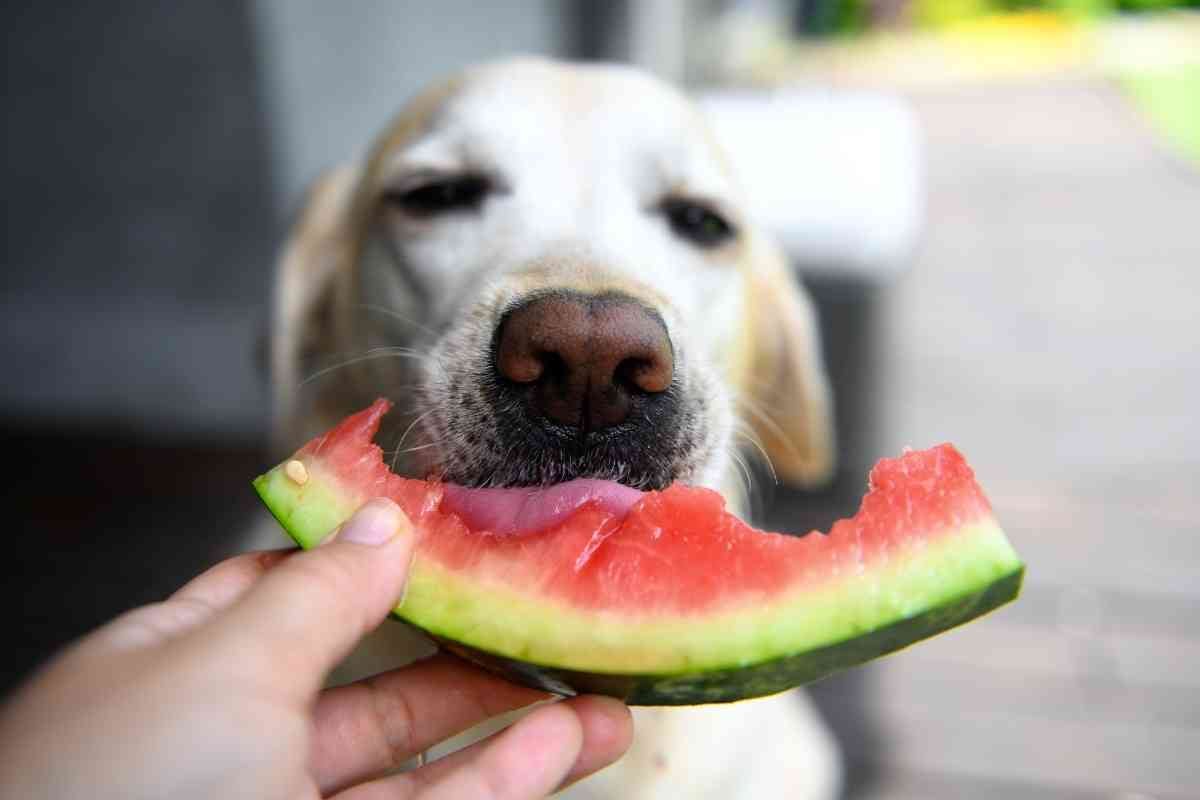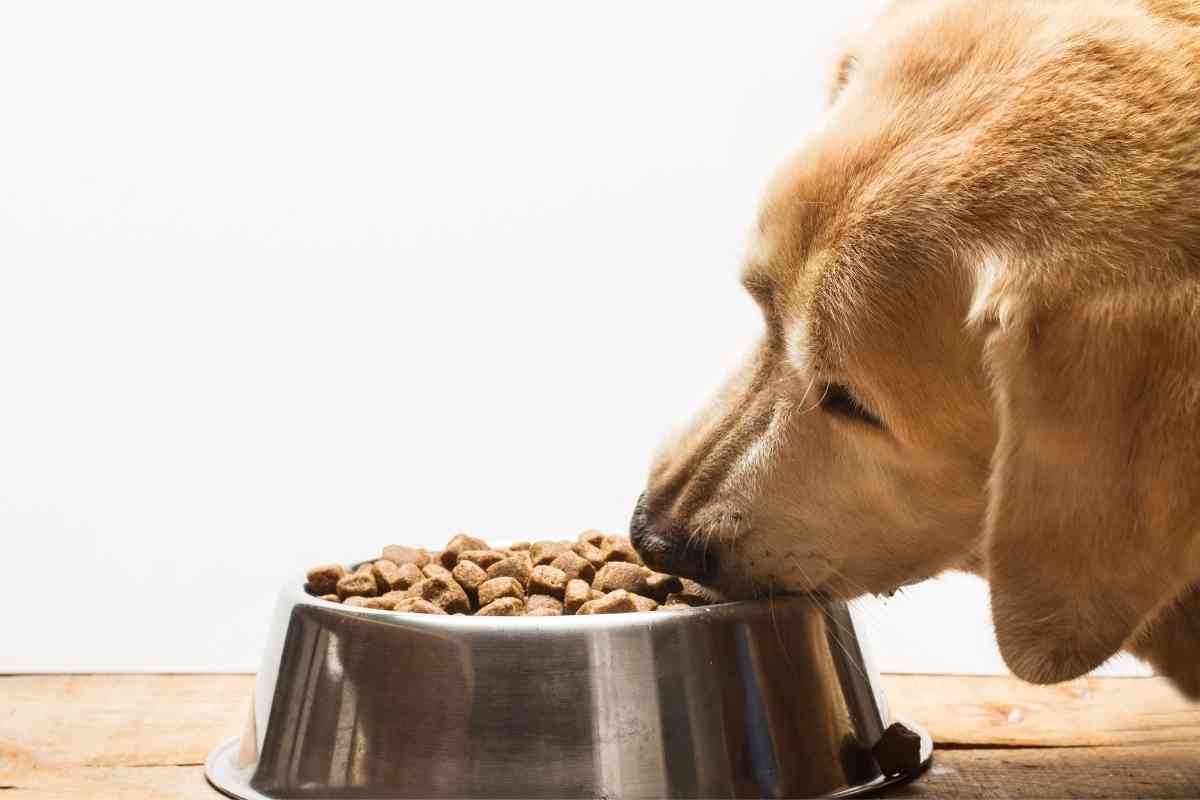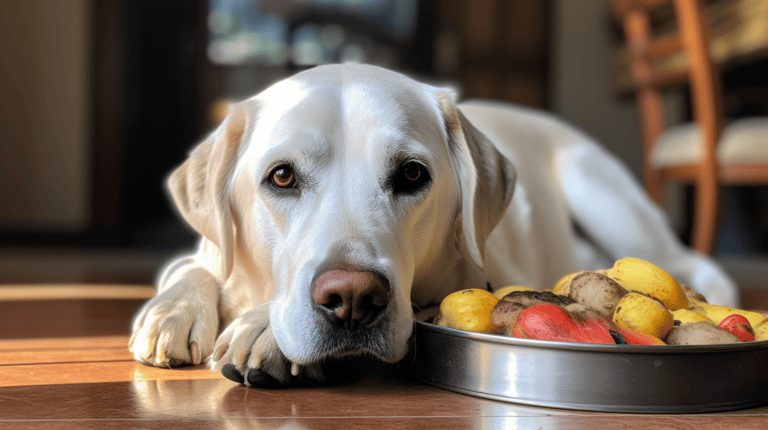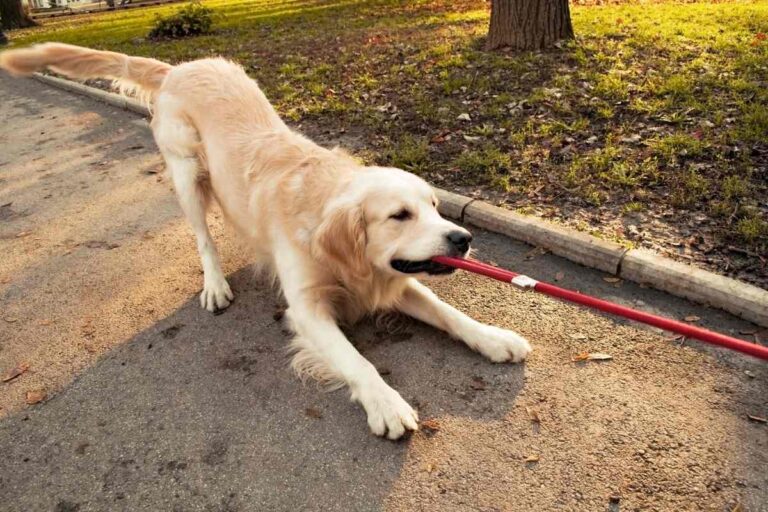Why Are Labs ALWAYS Hungry? 5 Reasons And Ways To Help
Even among dogs, the Labrador is notorious for being a pig. If you own a Lab, you may often wonder why your lab is always hungry. Sure, we know that all dogs love food and are always showing you their big round eyes to beg for treats. However, it might seem that your Labrador has an insatiable appetite which can be a cause of concern for some pet owners.

Why is my Labrador always hungry?
The truth is that Labradors have a genetic mutation that prevents their brains from getting the signals from their stomach that indicate your lab is full. However, some labs may also overeat because they are obese, stressed out, have an underlying medical condition, or have nutritional deficiencies.
In this guide, I can help you understand the various reasons why your lab is constantly begging for food and treats. In addition, it can also teach you how to control your pooch’s appetite.
As a proud parent of a Labrador, I also used to wonder why my lab won’t stop eating. With a lot of research and effort to understand the science behind a lab’s eating habits, I now understand why and I wish to share my knowledge with other concerned lab owners as well.
Why Is My Labrador Always Hungry?
You might be blaming yourself for your lab’s perpetual hunger; however, it might not have anything to do with what and how much you are feeding it. Instead, the issue can be due to a number of reasons.
Genetic Mutations
According to a 2016 research study from the University of Cambridge, a specific gene mutation may be responsible for your lab’s voracious and unceasing appetite. The culprit is the PCOM gene mutation that disrupts the transfer of signals from the stomach to the brain and interferes with the Labrador’s ability to tell whether it is full.
About 23% of Labrador Retrievers have at least one PCOM mutation in their genes.
As such, your lab will not be able to tell when it needs to stop eating. This can lead to obesity in dogs.
The study found that every mutated allele in the gene was associated with an increase of 1.9 kg in weight. Your dog will also have a higher composition of body fat and will have an increased appetite.
Interestingly, Labradors who were assistance dogs were more likely to have the mutated PCOM gene (about 45%). This indicates that Labradors are so easy to train because they are more motivated by food.
As of now, there is no treatment for the POMC mutation. If you own a Lab that is affected by the condition, you can manage it by consulting an experienced vet about your pooch’s diet plan and exercise regimen.
Training

The gene mutation is only responsible for increased appetite in some Labradors. However, not even three-fourths of Labs are affected by PCOM. Your dog’s voracious appetite may stem from your training methods.
We all know that our pooch is a pro when it comes to manipulating us to give it treats for good behavior. If you keep rewarding it with small treats in between its mealtimes, over time, your dog’s appetite will naturally increase.
If you are training your Labrador and give it a treat every time it learns something new, your dog will definitely try to learn faster – and in the process, consume even more treats, which can lead to obesity, and hence an increase in its appetite.
If this is the case, you can easily fix this by learning how to properly train your dog without resorting to ill-timed treats.
Underlying Medical Conditions
There are several medical conditions that can account for your Labrador being hungry all the time. These include:
Parasitic Infections: Roundworms, tapeworms, hookworms, and whipworms are common parasitic intestinal infections in dogs. These worms can steal your dog’s nutrients, cause bleeding in the intestine, and lead to malnutrition and anemia. If your dog has these parasites, then he will be less energetic and will need to eat more frequently.
Diabetes Mellitus: Like humans, your dog may also suffer from diabetes mellitus, which will prevent its body from properly regulating its blood sugar. The frequent lows in blood sugar level may make your Lab eat more to increase its energy levels.
Gastrointestinal or Pancreatic Issues: Gastrointestinal issues, like inflammation of the intestines, or exocrine pancreatic insufficiency, can lead to poor food absorption. Since your Lab’s stomach is not able to digest the food, your pet may try to compensate for it by eating more food. If your dog has a gastrointestinal disease, you might notice a change in the color and texture of its stool as well as weight loss, in spite of eating more.
Cushing’s Disease: Also known as hyperadrenocorticism, this condition is characterized by the adrenal glands overproducing the steroid hormone, cortisol. As a result, your Labrador may feel increased hunger as a side effect. It may also be more susceptible to gaining weight and might feel excessively thirsty as well.
Cancer: Unfortunately, Labradors can also develop various types of cancers, like other dogs. Cancer cells rob your dog’s body of nutrition, leading to low energy levels and increased appetite. Regular checkups with the vet can help early diagnosis of cancer or even prevent cancer from occurring in your Labrador.
High Amount of Stress
Like humans, dogs can also fall prey to stress and depression. Overeating in dogs has been linked to stress, anxiety, and phobias.
This kind of overeating can affect your Labrador’s health and cause your Labrador to become overweight. As a good pet parent, it is your responsibility to ensure that your Labrador remains happy and healthy and gets the proper mental stimulation it needs to thrive.
Nutritional Deficiencies
Nutritional deficiencies can occur if you are not providing high-quality, meat-based food to your dog or not giving it the right portion according to its age, size, and activity level. If your dog is not eating the right amount of food, it may constantly be bedding you to give it treats or scraps or may be chewing on non-edible items.
If you are not aware of the nutritional requirement of your Labrador, consult your vet to make you a diet plan.
How Can I Control My Lab’s Appetite?
Overeating can lead to a number of physical and mental issues for your dog, whether it is caused by genetics or bad eating habits. That is why you need to regulate what your Labrador eats.
High-Quality Dog Food
Always opt for high-quality food for your Labrador. Meat-based foods offer more health benefits than plant-based foods. In addition, your dog food should have the right amount of nutrients and fiber which will make your dog feel satiated for longer.
Portion Control
It is also just as important to figure out how much food your Lab needs. The label on your dog food package can only tell you so much but your pet’s food requirements are unique and will differ from brand to brand.
If you are noticing an increase in your dog’s weight, it might be wise to cut back on its portion by about one-third of the amount. However, before making any drastic changes to your Lab’s diet, it is important that you consult the vet.
Avoid Table Scraps
I understand how hard it is to resist your Lab’s puppy dog eyes at the dinner table, but you should not give in. If you buckle and give him scraps even once, your Lab will make a habit of asking you for food and even steal food from your table when you are not looking.
It is important that you set some boundaries and keep your dog out of the kitchen or the dining room when you are eating so that you do not succumb to your beloved pooch’s tricks.
Use Slow Feeders
Dog puzzles or slow feeders are effective in slowing down your pet’s eating speed by making it work on the puzzle. This way, your dog’s body will have enough time to process the food and send signals to the brain that the pooch has eaten enough. This will prevent overeating and will help your dog understand when it is time to stop.
Talk to Your Vet
If you are concerned about your Lab’s excessive eating habits, you won’t go wrong with consulting a vet. A checkup can help find out if your dog’s gluttonous behavior is simply because of improper training or feeding habits or is due to some underlying medical issue.
Whatever the reason is, it is always best to get a professional opinion when it comes to the health of your dog.






